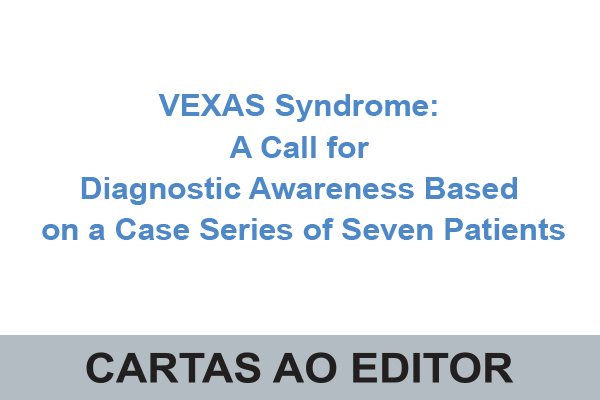SOCIAL MEDIA
Portuguese Medical Association's Scientific Journal

Dear Editor,
VEXAS syndrome (vacuoles, E1 enzyme, X-linked, autoinflammatory, somatic) is a recently described disease caused by somatic myeloid mutations in UBA1,1 a gene with critical importance in ubiquitylation (the addition of ubiquitin residues to a protein in order to mark it for degradation by the proteosome). Patients, mostly male and middle-aged or older, present with multisystemic inflammatory clinical manifestations (recurrent fever, neutrophilic cutaneous and pulmonary infiltrates, chondritis, vasculitis, eye and ear, nose, and throat involvement). Hematologic findings are common: macrocytic anaemia, myelodysplasia, plasma cell dyscrasia,2 vacuolization of myeloid and erythroid precursors in the bone marrow (BM) and thrombosis.1 The true prevalence rate of VEXAS remains unknown, but mounting evidence suggests that it may be much more common than initially anticipated. The aim of this case series is to raise awareness to the importance of earlier diagnosis and treatment of this entity.
Click here for the full paper.